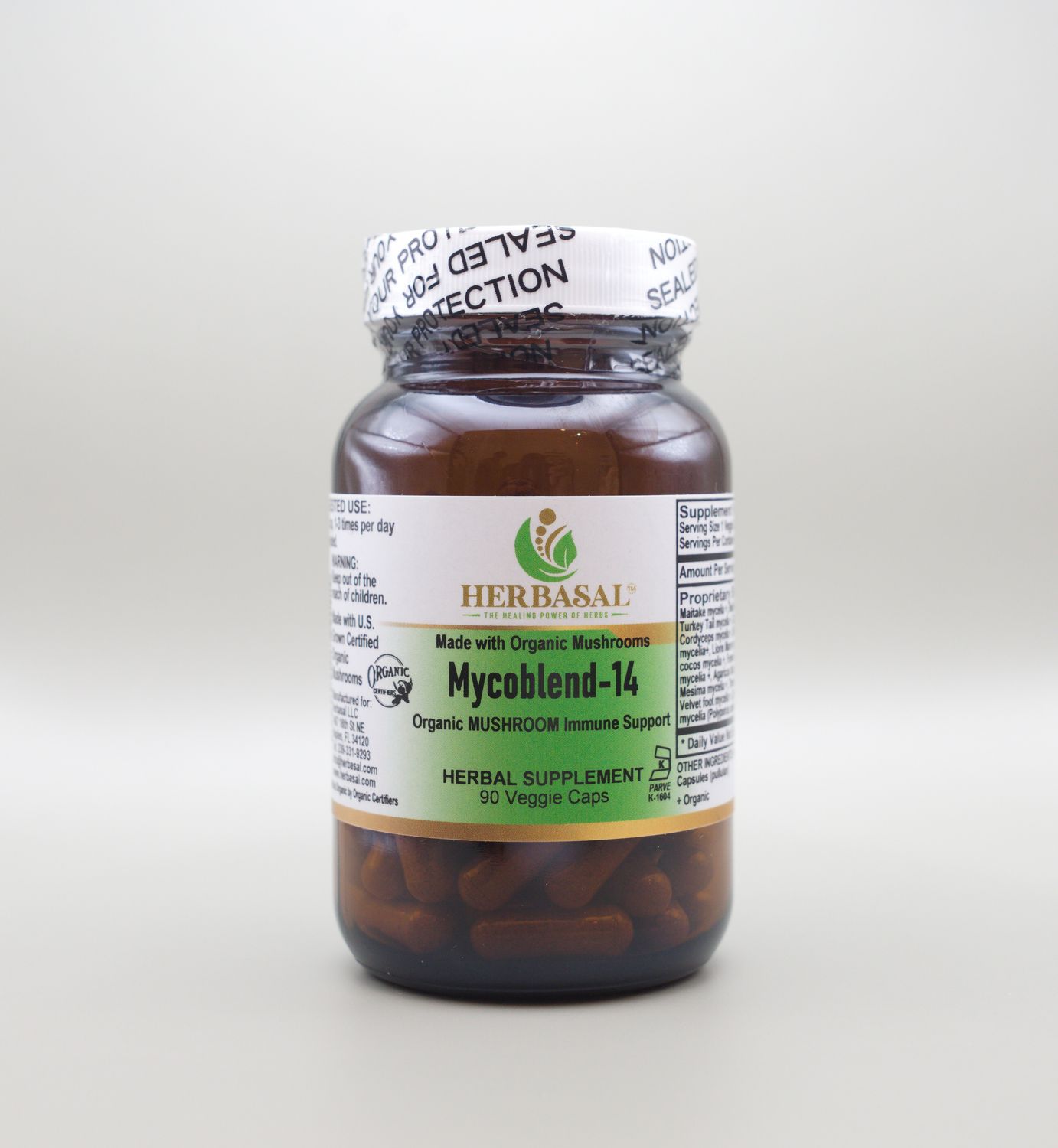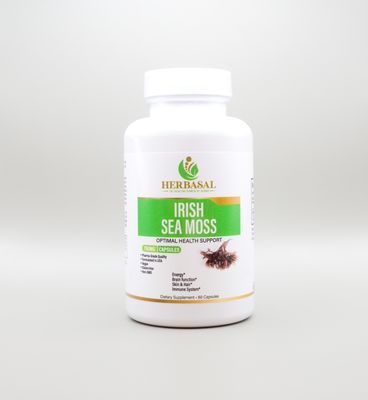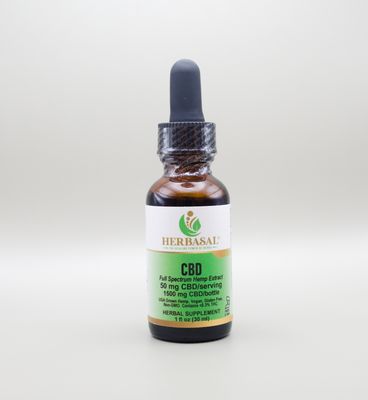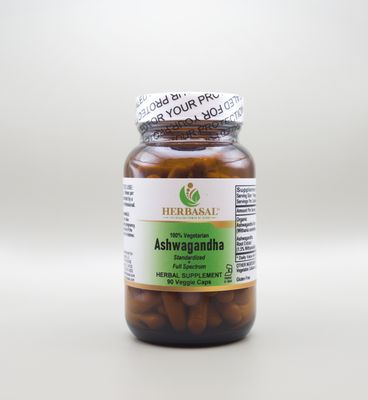
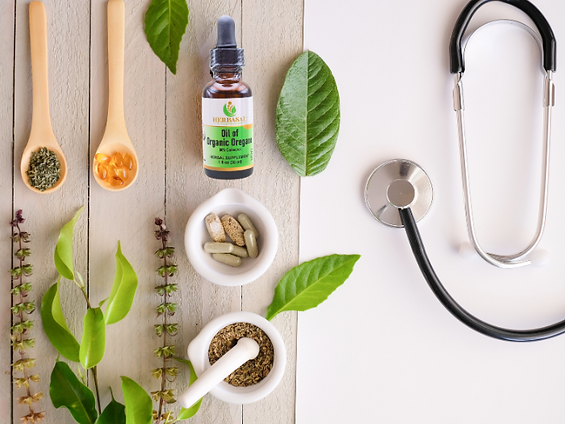
Mycoblend-14 (Organic Mushroom Blend)
Herbasal Mycoblend-14 - a powerful blend of organic mushroom mycelium, carefully selected for their immune-boosting properties, combats stress & fatigue, aids in recovery from debility & chemo, assist in immune deficiency conditions & auto-immune disorders. Organic, Non-GMO, Kosher, NSF GMP certified, Allergen Tested, Gluten-Free, Vegan.
SERVING SIZE:
1 Veggie Capsule = 525mg
INGREDIENTS:
Certified Organic Mushroom Mycelium of:
Chaga, Maitake, Reishi, Turkey Tail (Coriolus), Cordyceps, Shitake, Lions Mane, Poria cocos, Fomes fomentarius, Agaricus blazei, Mesima, Tremella, Velvet Foot, Zhu Ling (Polyporus umbellatus)
OTHER INGREDIENTS:
Vegetable Capsules (pullulan)
DOSAGE:
1 capsule 1-3 times per day with food or as directed by your healthcare professional.
*Disclaimer: These claims have not been evaluated by the Food and Drug Administration. This product is not intended to diagnose, treat, cure, or prevent any disease. Before incorporating any dietary supplement, consult with your healthcare provider.
*Pregnant or nursing mothers, individuals under 18, and individuals with known medical conditions should consult a physician before use.
BENEFITS:
Antibiotic: Mushrooms possess antibiotic properties.
Nutrient-Rich: Mushrooms are low in calories and packed with essential nutrients like vitamins (such as B vitamins, vitamin D, and vitamin C), minerals (like selenium, potassium, and copper), and antioxidants.
Immuno-Modulating: Many mushrooms, such as reishi, shiitake, and maitake, contain compounds that support the immune system, helping to fight off infections and illnesses.
Antioxidant Properties: Mushrooms are rich in antioxidants like selenium and ergothioneine, which help protect cells from damage caused by free radical
Heart Health: Some varieties of mushrooms, like shiitake, have been linked to improved heart health by lowering cholesterol levels and reducing inflammation.
Blood Sugar Regulation: Certain mushrooms, such as maitake and cordyceps, may help regulate blood sugar levels, making them beneficial for those with diabetes or insulin resistance.
Cancer Prevention: Some mushrooms, particularly reishi and turkey tail, contain compounds with anti-cancer properties. They may help inhibit the growth of cancer cells and support the immune system in fighting cancer.
Digestive Health: Mushrooms are a good source of dietary fiber, which promotes a healthy digestive system and may aid in weight management.
Energy and Endurance: Cordyceps mushrooms are known for their potential to improve energy levels, endurance, and athletic performance.
Stress Relief: Reishi mushrooms are often used for their calming and stress-relieving properties, helping to promote relaxation and improve sleep.
Anti-Inflammatory Effects: Some mushrooms, such as lion's mane and chaga, have anti-inflammatory properties, which can help reduce inflammation in the body and support overall health.
Brain Health: Lion's mane mushrooms are known for their potential to improve cognitive function and memory. They may also support the growth of nerve cells in the brain.
Skin Health: The antioxidants and anti-inflammatory compounds found in mushrooms can contribute to healthier skin, reducing signs of aging and promoting a glowing complexion.
INDICATIONS:
Mushroom Immune is a synergistic blend of 14 powerful organic mushroom mycelia.
The formula can be used as both a preventative to maintain a strong immune system and protect one from immune breakdown, and as a treatment for those in the
midst of immune deficiency, chronic stress and fatigue, debility, illness, and disease.
Many diseases are linked to immune dysfunction, including cancer, AIDS/HIV, hepatitis, chronic fatigue syndrome, and autoimmune disorders. Medicinal mushrooms
are believed to have approximately 125 therapeutic effects including, immuno modulating, antioxidant, antitumor, antiviral, antibacterial, antiparasitic, hepatoprotective, and antidiabetic properties. Many of the medicinal benefits of mushrooms are derived from glucan polysaccharides and polysaccharide-peptides found in their cell walls. Polysaccharides are long molecule chains that have antitumor
and immunostimulating properties. They have been shown to activate the immune
response and potentiate a variety of immune cells including host cells, such as
monocytes, neutrophils, dendritic cells, natural killer (NK) cells, and macrophages,
plus chemical messengers, such as interferons, cytokines, and interleukins. Some
polysaccharides act as immune system enhancers and some have direct cytotoxic
effects on cancer cells. Certain immune cells have specific receptors for specific
polysaccharides present in mushrooms, such as Dectin-1, TLR and CR3, which
explains why mushrooms have such a profound effect on immunity. Research has
reported that mushrooms used in combination with each other have a multitude of
beneficial effects, including increased longevity and reduced side effects in advanced
cancer patients undergoing chemotherapy.
Maitake stimulates regulation of interleukin-1, NK-cells, cytotoxic T-cells, and
superoxide anions. The polysaccharides it contains have a unique structure and
have been extensively researched for their immunomodulating activity. Maitake’s
primary polysaccharide, beta-D-glucan is well absorbed orally. It has been shown to
enhance immune function and has been studied for its benefits in cancer treatment
and blood sugar support. Maitake is considered to be anti-HIV, antihypertensive,
antidiabetic, and antiobesity. It is used for prevention and treatment of flu, diabetes,
hypertension, hypercholesterolemia, urinary tract infections, and HIV.
Reishi contains numerous polysaccharides as well as triterpenes and amino acids
that increase immunity and provide cardiovascular and blood sugar support. It stimulates circulation and helps lower blood pressure. Its water-soluble polysaccharides
have been shown to have antitumor and immunostimulating activity. Studies report
Reishi helps reduce cholesterol, blood pressure, and blood sugar levels, inhibits
platelet aggregation, and alleviates altitude sickness. It is analgesic, anti-inflammatory, antibacterial, antioxidant, antiviral, and demonstrates anti-allergic activity.
Turkey Tail, also called Coriolus, has a multicolored cap resembling a turkey tail.
It has been heavily researched for its ability to support immunity. PSK, a water-soluble protein-bound polysaccharide and PSP, apolysaccharide-peptide are two key compounds in Turkey Tail that have been the focus of much research. PSK acts both directly (stimulates immunity) and indirectly (cytotoxic) on tumor cells, and also enhances interferon production to destroy viruses.
Chaga is known by in Siberia as the “Mushroom of Immortality.” They consumed it
on a daily basis to increase stamina, prevent disease, and promote longevity. It is
unlike other mushrooms in that it isn’t soft, but very hard like wood, and looks less like
a mushroom and more like a large tree growth. It protects itself from harsh climates
by concentrating natural compounds in order to survive, making it extremely nutrient
dense and powerful in its health benefits. It is high in B vitamins, minerals, enzymes,
flavonoids, and phenols. It contains a unique pigment-like phenolic compound called
chromogenic complex, which exerts a protective effect on tissues. Chaga is also
rich in superoxide dismutase (SOD), a potent antioxidant enzyme that scavenges
tissue-damaging free radicals. It is considered to be a powerful adaptogen that
strengthens the body’s resistance to stress. Its active constituents are believed to
be polysaccharides, triterpenes, and sterols. It has anti-inflammatory,
antimutagenic, antiviral, analgesic, hepatoprotective, immuno-stimulating, and
hypoglycemic effects. It is also a rich source of beta glucans that possess immunomodulatory activity.
Cordyceps contains polysaccharides, sterols, peptides, fatty acids, vitamins, minerals, and nucleotides, and have been found to support the heart, lungs, kidneys,
adrenals, and immune system. They are commonly used to increase energy, endurance, and sexual vitality. Cordyceps has antioxidant, free radical-scavenging, and hypoglycemic properties.
Shiitake demonstrates anticancer benefits not by directly attacking cancer cells,
but by enhancing the immune system. It also has immunomodulating, antibacterial, antiviral, anti-parasitic, hepatoprotective, and cardiovascular effects.
Lions Mane is used in traditional Chinese medicine to increase strength and vigor,
and to improve digestion. Its polysaccharides have been shown to have cytotoxic
effects in cancer cells. Lions Mane is unique in that is supports brain health. It
contains nerve growth factors (NFG’s), which are involved in the growth of neurons.
Poria cocos demonstrates anti-cancer and immunomodulatory activities. Its main
chemical constituents include triterpenoids, polysaccharides, ergosterol, caprylic
acid, undecanoic acid, lauric acid, dodecenoic acid, and palmitic acid. In Chinese
medicine it is used to treat conditions of the heart, lungs, kidneys, and spleen. In
cancer therapy it is used to lessen the side effects of chemotherapy, strengthen the
body, increase appetite, and improve body weight.
Fomes fomentarius has a long history of use as a styptic to stop bleeding and as a
vulnerary to heal wounds. In China it has been used to treat cancers of the stomach,
uterus, and esophagus. It exhibits antibacterial, antiviral, and antitumor properties,
which are believed to be primarily attributed to its iodine content and to a substance
it contains called fomentariol.
Agaricus blazei, native to Brazil, is widely cultivated in Japan for its medicinal prop-
erties. It has been used to treat many diseases including chronic hepatitis,
diabetes, cardiovascular disease, and AIDS. It supports the immune system and
has shown immunomodulating and antitumor activity.
Mesima, also known as Phellinus Linteus, contains beta D-glucan and lectin, which
enhance immune activity, and a compound called interfungins A, which has been
reported to help balance blood sugar levels. It also exhibits antioxidant and antibacterial effects. It has been used to treat gastroenteric dysfunction, and can help in conditions of constipation, diarrhea, and irritable bowel.
Tramella is thought of as a tonic to the immune system and has been traditionally
used in Chinese medicine as a treatment for exhaustion and debility. It enhances
immune function and leukocyte activity. It contains the acidic
polysaccharide glucuronoxylomannan. Clinically, Tramella has been shown to be
an effective treatment for chemotherapy-induced leukopenia.
Velvet Foot, known in China and Japan as Enokitake, is traditionally used in Chinese
medicine to treat liver disease and gastric ulcers. Zhu Ling (Polyporus umbellatus) has been traditionally used to treat edema, urinary problems, vaginal discharge, jaundice, and diarrhea. It possesses diuretic activities and has been used in the treatment of kidney diseases.
*Disclaimer: These claims have not been evaluated by the Food and Drug Administration. This product is not intended to diagnose, treat, cure, or prevent any disease. Before incorporating any dietary supplement, consult with your healthcare provider.
*Pregnant or nursing mothers, individuals under 18, and individuals with known medical conditions should consult a physician before use.
REFERENCES:
Bruno G. Medicinal Mushrooms-Informed Opinion. Natural Health Research
Institute. http://www.naturalhealthresearch.org.
Hetlad G, Johnson E. Effects of the medicinal mushroom Agaricus blazei Murill
on immunity, infection and cancer. Scand J Immunol. 2008 Oct;68(4):363-70.
Phellinus Linteus. www.medicinalmushrooms.net.
Smith JE, Rowan NJ, Sullivan R. Medicinal Mushrooms: Their therapeutic
properties and current medical usage with special emphasis on cancer
237
treatments. 2002 May. http://www.academia.edu/305933.
Tinder Polypore. Hiker’s Notebook. http://hikersnotebook.net/Tinder+Polypore.
Wasser SP. Medicinal Mushroom Science: History, Current Status, Future
Trends, and Unsolved Problems. Int J Med Mushr. 2010;12(1):1-16.
Wild forest chaga. www.chagaknowledge.com.
Youn MJ, Kim JK, et al. Potential anticancer properties of the water extract
of Inonotus obliquus by induction of apoptosis in melanoma B16-F10 cells. J
Ethnopharmacol. 2009 Jan 21;121(2):221-8.
Zhao YY. Traditional uses, phytochemistry, pharmacology, pharmacokinetics and
quality control of Polyporus umballatus: a review. J Ethnopharmacol. 2013 Aug
26;149(1):35-48.














